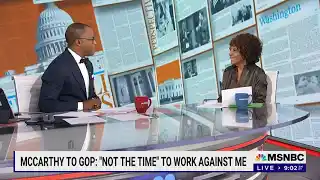Republican National Committee co-chair Lara Trump ignited controversy with her recent remarks on Newsmax, where she claimed that her father-in-law, former President Donald Trump, has faced more victimization than “anyone in history.” Lara’s defense of Trump’s perceived persecution drew swift criticism, highlighting the ongoing debate surrounding privilege, accountability, and truth in American politics.

The Interview Exchange: During her interview with Newsmax host Carl Higbie, Lara Trump echoed sentiments of victimhood, portraying Donald Trump as a figure besieged by misinformation and disinformation since his entry into politics. Despite facing pushback from Higbie regarding the prevalence of false information in political discourse, Lara doubled down on her assertion that Trump has weathered unprecedented attacks on his character and administration.
Social Media Backlash: Lara’s defense of Trump’s perceived victimization quickly elicited strong reactions on social media, with many users challenging her narrative of victimhood. Critics pointed to Trump’s lifelong privilege and the numerous controversies surrounding his administration, questioning the validity of Lara’s claims. One user on X (formerly Twitter) sarcastically highlighted Trump’s history of legal troubles and ethical controversies, suggesting that his actions may be the source of his perceived persecution.
Analysis of Criticism: The backlash against Lara Trump’s remarks underscores a broader skepticism among anti-Trump audiences regarding narratives of victimization within the Republican Party. Critics argue that Trump’s privileged background and contentious actions as president invalidate claims of unjust treatment, highlighting the need for accountability rather than sympathy.

Satirical Responses: Some social media users responded to Lara’s comments with satire and sarcasm, ridiculing the notion of Trump as a victim and highlighting the absurdity of his perceived hardships. Satirical remarks targeting Trump’s wealth, behavior, and political legacy served as a form of social commentary on the perceived disconnect between Trump’s privilege and his portrayal as a victim.
Conclusion: Lara Trump’s defense of Donald Trump’s victimization narrative has sparked intense debate and scrutiny within anti-Trump circles. As discussions around privilege, accountability, and truth continue to dominate political discourse, Lara’s remarks serve as a focal point for broader conversations about power dynamics and narratives of victimhood in American politics. Despite her role as RNC co-chair, Lara’s defense of Trump’s perceived victimization remains subject to critique and skepticism from those who challenge prevailing narratives of privilege and impunity.












Discussion about this post